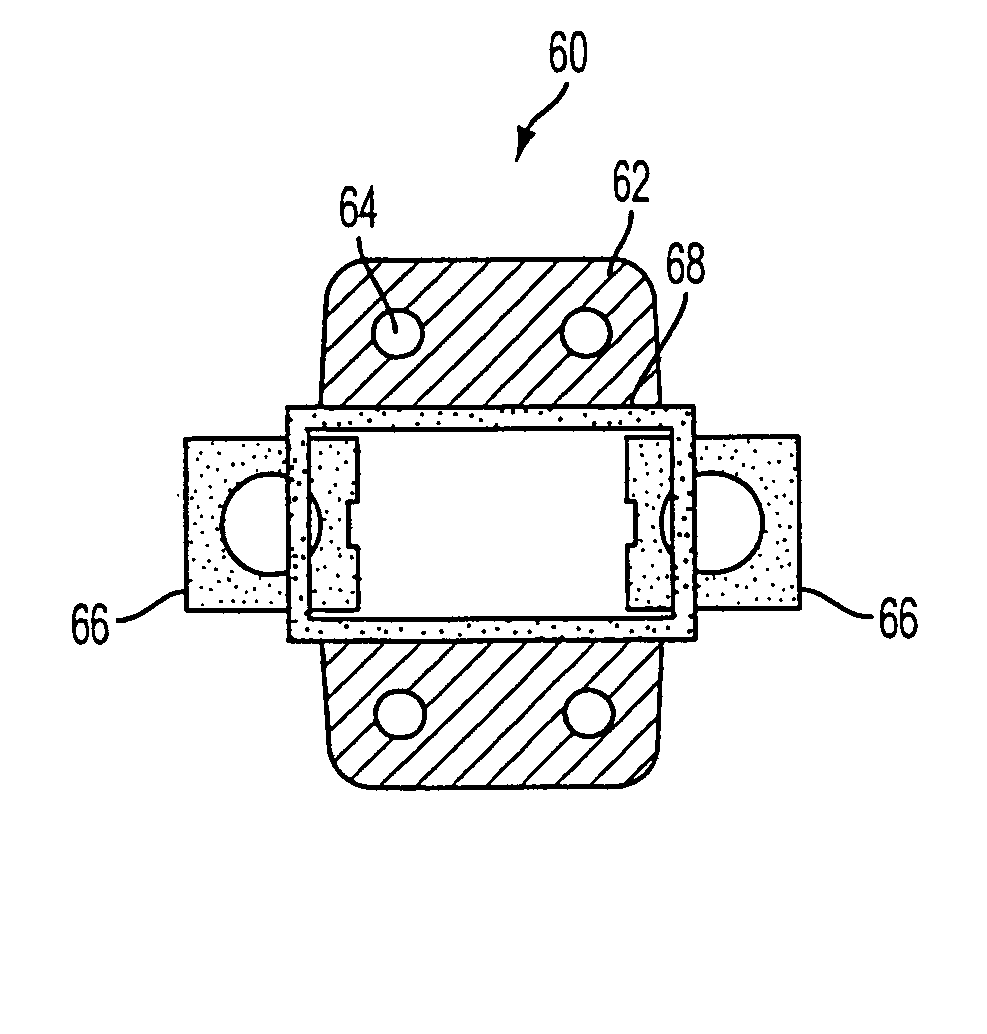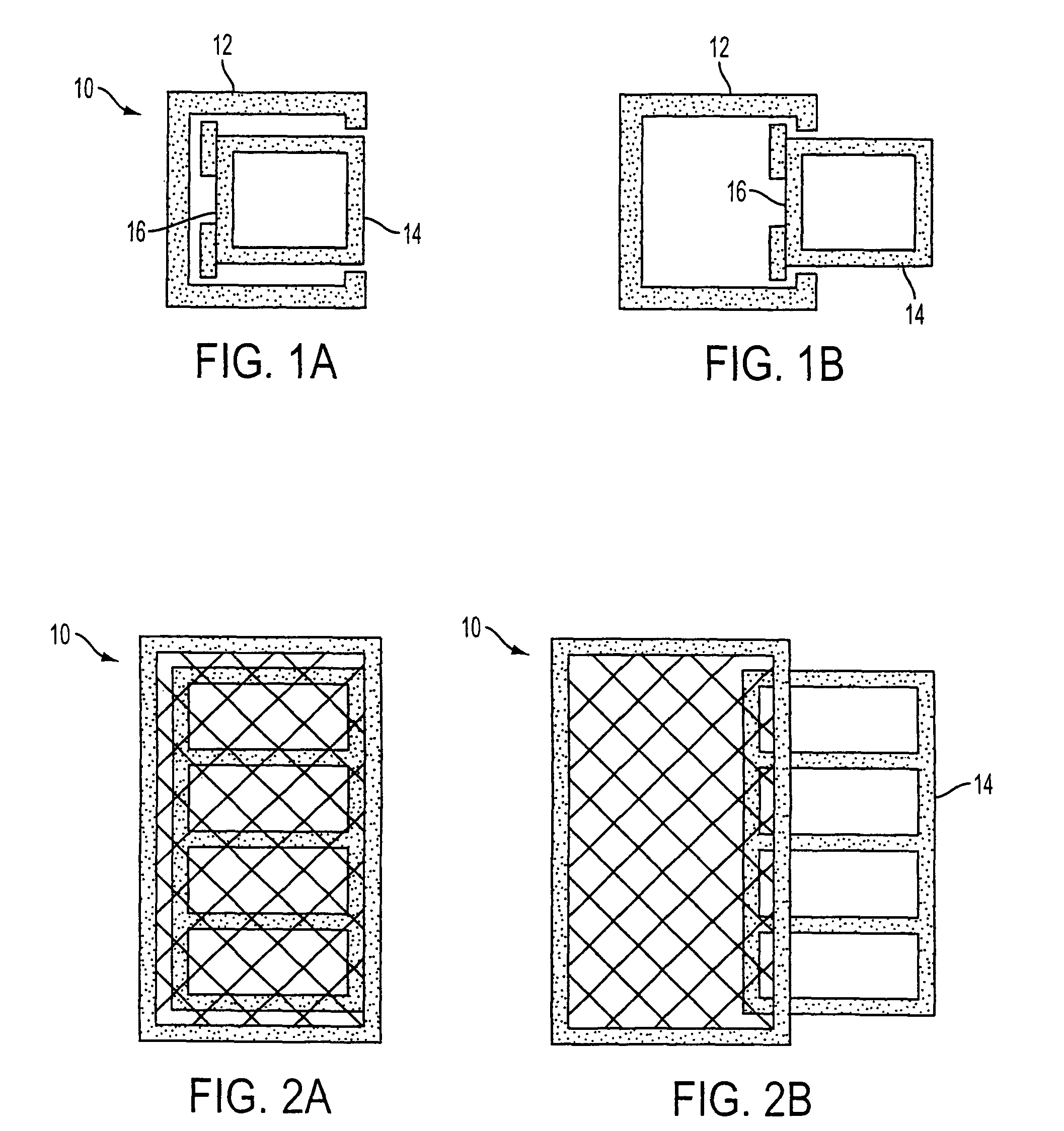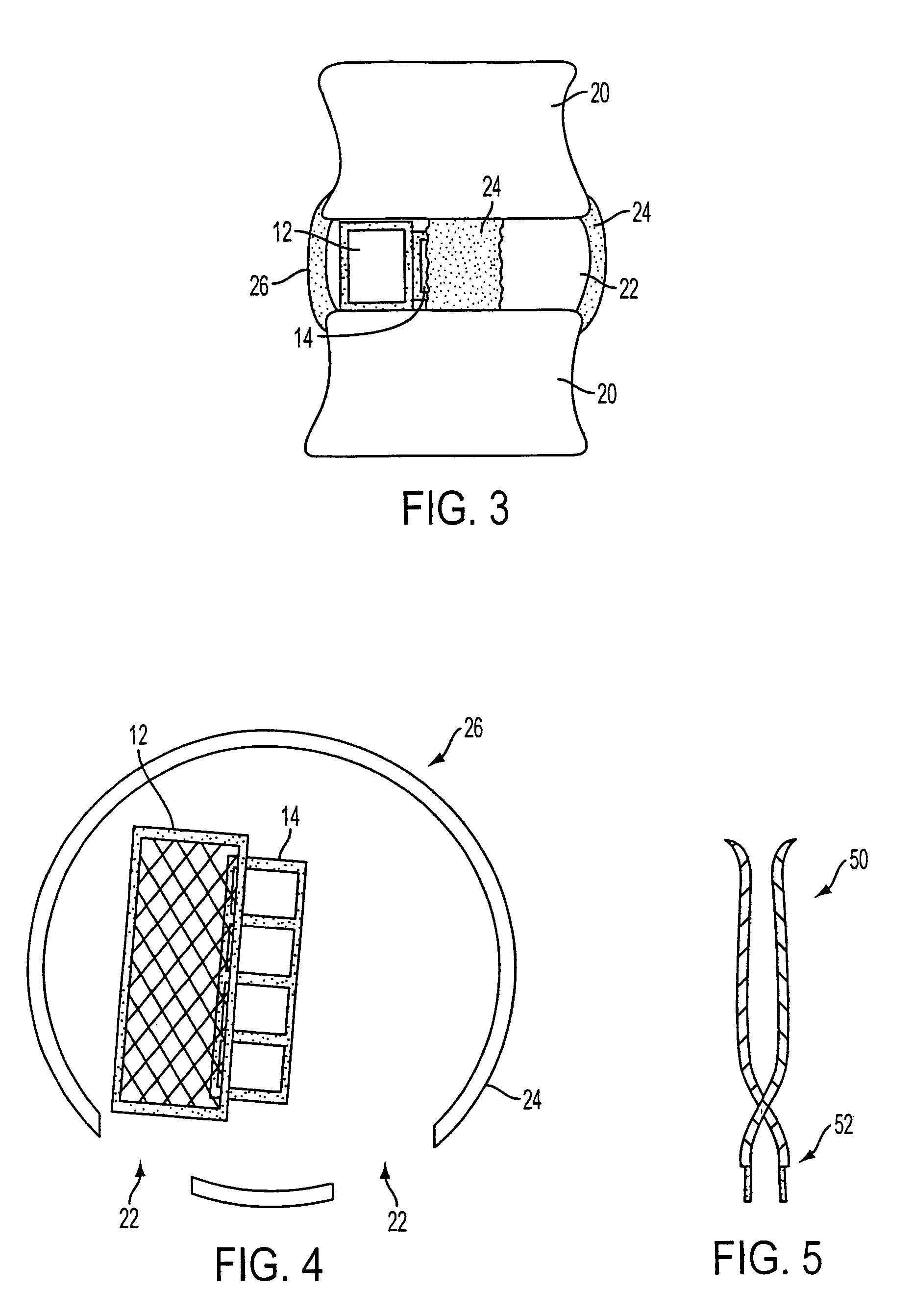Lateral expandable interbody fusion cage
a fusion cage and expandable technology, applied in the field of lateral expandable interbody fusion cage, can solve the problems of less effective control of vertebral motion by redundant annular fibers, less ability to handle compression load, and thinner nucleus, and achieve the effect of promoting fusion between two vertebra
- Summary
- Abstract
- Description
- Claims
- Application Information
AI Technical Summary
Benefits of technology
Problems solved by technology
Method used
Image
Examples
Embodiment Construction
[0036]The laterally expandable interbody fusion cage of the present invention comprises an outer cage 12 and an inner cage 14 that can be inserted sideways into the outer cage 12. The inner cage 14 has a notch 16 for an expander to grip on the front of the inner cage 14. The inner cage 14 can be filled with graft material prior to insertion.
[0037]FIG. 1A shows an end view of the cage 10 as inserted, with the inner cage 14 inside of the outer cage 12. FIG. 1B shows an end view of the cage as expanded. With the cage expanded following insertion into the interspace, the outer cage 12 can be filled with graft material.
[0038]FIG. 2A shows a top view of the cage 10 as inserted. FIG. 2B shows the right top view of the cage 10 as expanded following insertion. The cage 10 can be expanded by adjusting the position of the inner cage 14 to the desired dimensions.
[0039]FIG. 3 is a view of two vertebral bodies 20 with a disc between them. Annular windows 22 have been created bilaterally through w...
PUM
 Login to View More
Login to View More Abstract
Description
Claims
Application Information
 Login to View More
Login to View More - R&D
- Intellectual Property
- Life Sciences
- Materials
- Tech Scout
- Unparalleled Data Quality
- Higher Quality Content
- 60% Fewer Hallucinations
Browse by: Latest US Patents, China's latest patents, Technical Efficacy Thesaurus, Application Domain, Technology Topic, Popular Technical Reports.
© 2025 PatSnap. All rights reserved.Legal|Privacy policy|Modern Slavery Act Transparency Statement|Sitemap|About US| Contact US: help@patsnap.com



